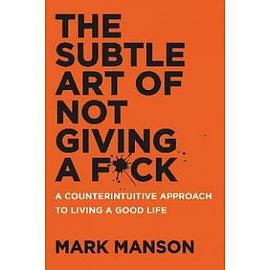
最近读了马克·曼森的重塑幸福,这本书的英文原名其实更加直白一点,应该可以直译成“不在乎的艺术“?但其实书里更多的篇幅是在教大家怎么去“在乎”真正重要的事情。有一些比较吸引我的观点:
什么是幸福?人类对这个问题的思考似乎没有停止过,作者从佛教和生物学的角度做出了解释:佛教认为众生皆苦,生活就是由一系列无穷尽的问题构成的,我们在解决问题之后才收获快乐和幸福,从生物学的角度来看,人类有一种永不满足的心理,进步到一定程度后,立马就会有新的问题想要解决,这种自驱力让我们从石器时代就开始解决问题,并一步步走到今天的信息世界,解决问题让我们收获幸福,而逃避问题让人陷入痛苦;
反向定律:我们越是想要得到某些事情,越是得不到,加缪有过类似的说法:“如果你一直寻找幸福的本质,你将永远不会幸福,如果你一直在找人生的意义,你永远过不好人生”,为什么『过于在乎』往往没有好结果呢,很反直觉,但是冷静下来思考:我们在『过于在乎』的这个过程中,解决了多少实际的问题,在这个过程里,我们花在幻想、FOMO 和焦虑的时间更多,还是克服困难的时间更多呢?
把时间花在真正重要的问题和事情上才是最省力的,不在乎结果,去在乎获得这个结果需要我们付出什么代价更加重要,比如,”拥有好的身材“是结果,需要付出的代价是:高质量的作息,控糖、在健身房和跑道上挥洒汗水;“成为摇滚明星”是结果,需要付出的代价是:购买专业设备,长时间的刻苦练习;
其实核心的流程就是:先要一个“结果”,然后明确代价(需要面对的困难),并且想清楚:结果和代价自己都能接受吗?如果只能接受结果,不想付出代价,那么这就不是我们真正想要的。在这个流程里,我们判断的代价是否准确也很重要,如果代价考虑的都不对,执行力再高也是白费力;
而有些时候,我们知道目标,也知道代价,但为什么很多人都做不到呢,有一个重要的原因是我们身边往往充斥着“清晰的诱惑”,而缺少 “清晰的代价分析”,当你用“模糊的渴望”(好身材) 去对抗 “清晰的诱惑的时候”(深夜的炸串,精准推送的短视频),结局往往是失败的。
我们能否具备一种随时进行代价分析的能力呢?还是说要先分析好代价,并铭记于心呢?很多时候达成结果的代价就是一堆的行为,只要是行为,无论痛苦与否,把它们训练成肌肉记忆或者说条件反射,不正是最省力的方式吗?
但很快我就意识到这种做法是非常困难并且反人性的,人总是处于一种在本能和理智之间反复横跳的状态,过于强调自己的本能和兽性、否认自己作为人的理智和超越性是对自己的不诚,而过于追求绝对理性的状态也是对自己的不诚,会丧失自己作为”人“所能够享受到的种种爱意;
也许保持适度的本能,但不要完全沉迷(比如沉迷短视频或者其它易成瘾行为),在这种状态下去追求超越性的时候,痛苦与挣扎一定是不可避免的,但也许这就是人类的设定;